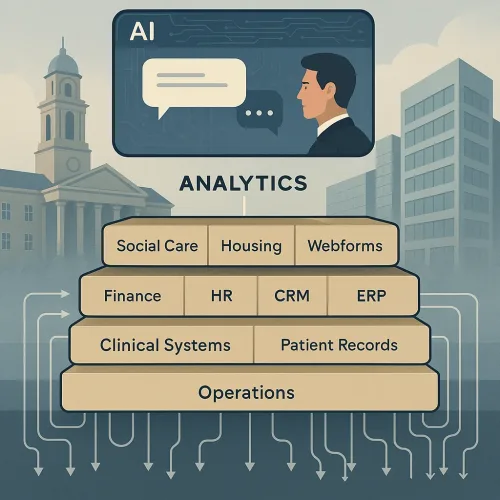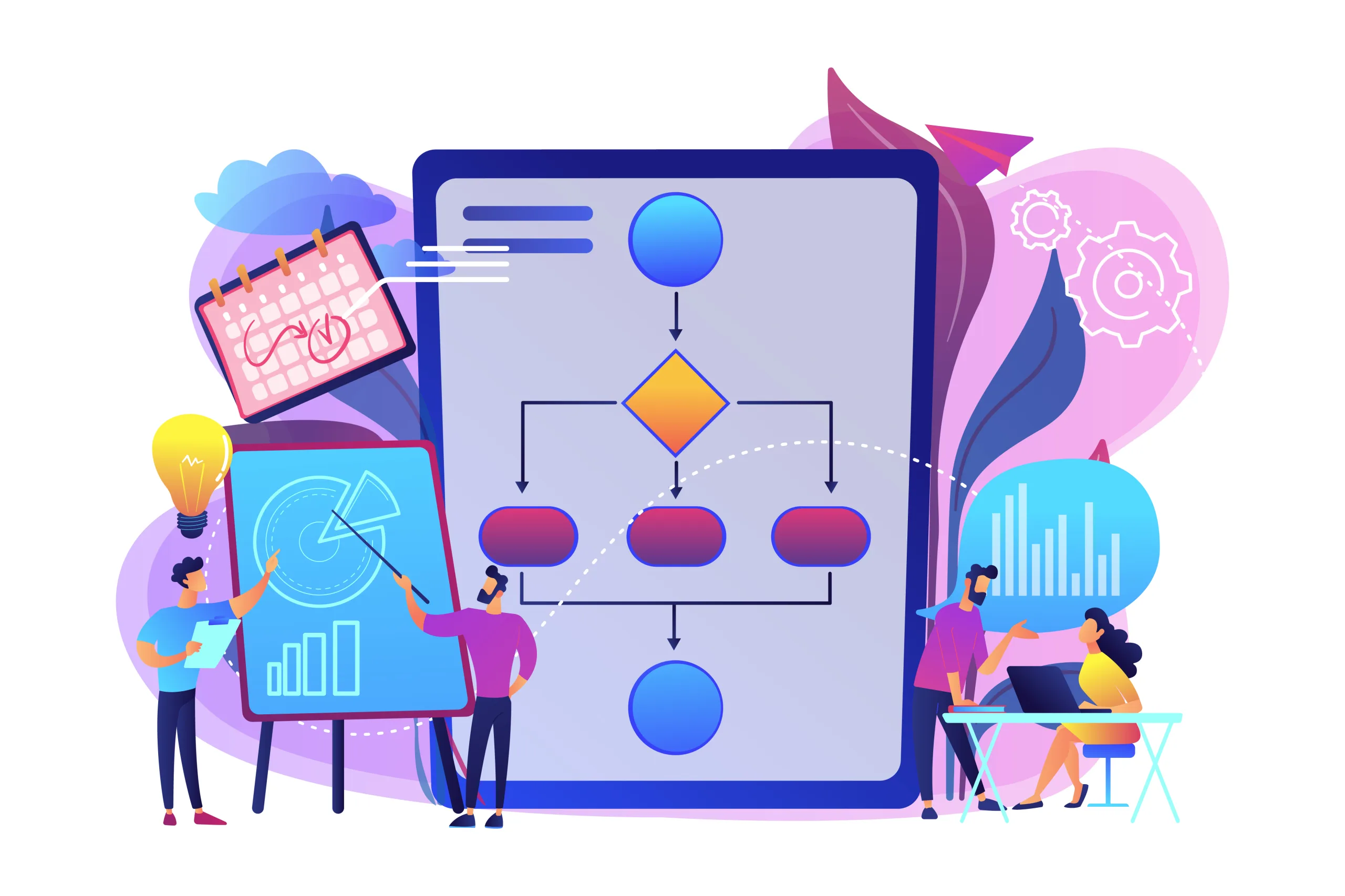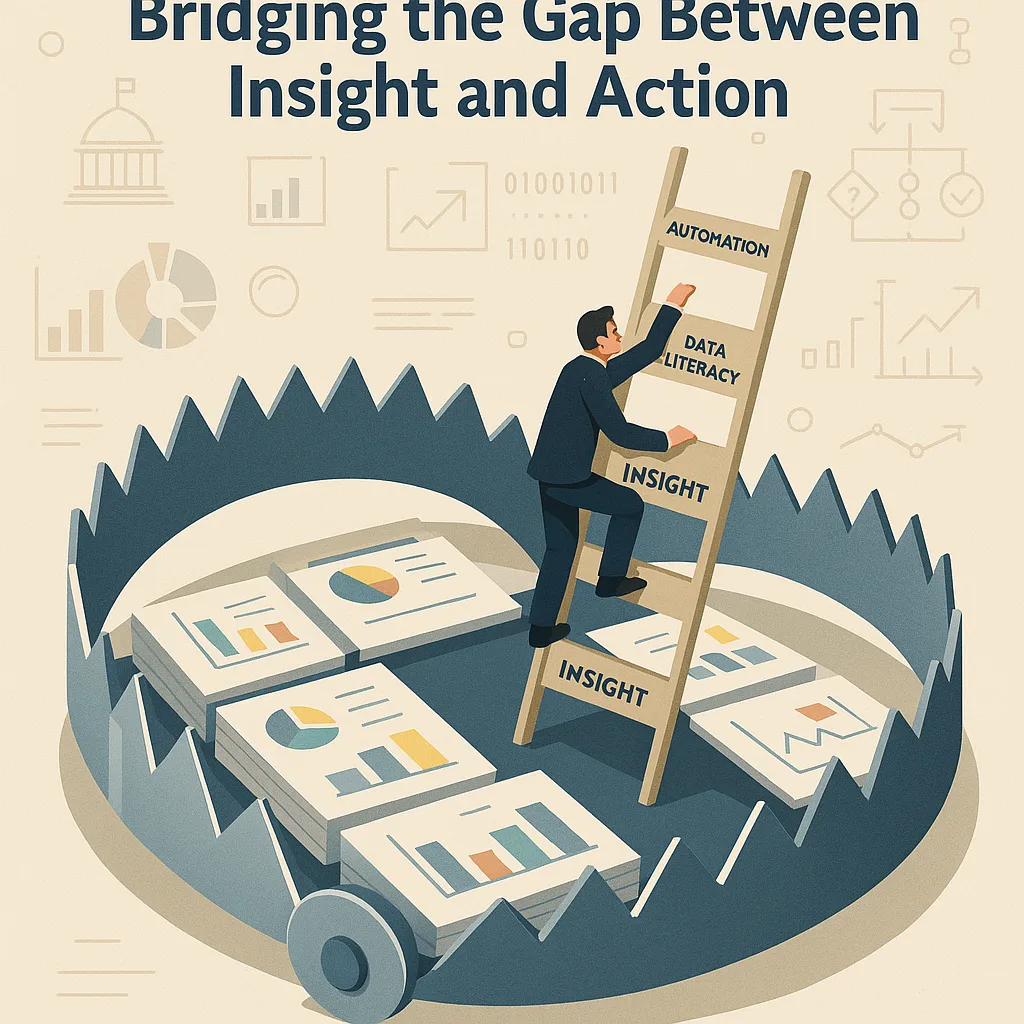
Why AI Won’t Replace Analytics — It Needs It
There’s a lot of excitement — and confusion — about Artificial Intelligence (AI). Some believe it will make traditional data and analytics services obsolete. After all, if AI can answer questions instantly, why invest in dashboards, reports, or data platforms?
Here’s the reality: AI doesn’t replace analytics. It depends on it. And if you’re a leader in a council, healthcare organisation, or private enterprise, this distinction matters more than ever.
AI and Analytics Use the Same Data — But Differently
AI tools and analytics systems both rely on the same underlying data — the information stored in your core systems. These include platforms used in social care, housing, webforms, finance, HR, case management, patient records, clinical systems, customer relationship management (CRM), enterprise resource planning (ERP), and operational systems across both public and private sectors.
AI can’t magically “know” what’s happening in your services. It needs access to clean, structured, and well-organised data — the same kind of data that analytics teams already prepare. Without this, AI is just guessing. If your data isn’t ready, AI won’t be either.
AI Needs a Data Platform to Stand On
AI tools don’t work in isolation. They need a solid foundation — systems that move, clean, and organise data from across your organisation. This includes data pipelines, storage layers, and business models that define what the data actually means.
Think of AI as the “front door” — the part people interact with. But behind that door, there needs to be a well-built house. If your data isn’t flowing properly or doesn’t reflect how your services actually work, AI won’t deliver useful answers. Investing in your data platform is investing in AI success.
AI Agents Still Need Business Context
Even the most advanced AI doesn’t understand your local priorities, service delivery models, or what success looks like in your organisation. It doesn’t know what a good outcome is for a vulnerable resident, a patient, or a customer. It doesn’t understand how to interpret a spike in housing applications, missed appointments, or customer churn.
AI needs to be guided by people who understand your services. That means embedding business knowledge — your knowledge — into the data and the tools. Without this, AI might give you answers that are technically correct but practically useless.
AI + Analytics = Augmented Intelligence
The true power of AI emerges when it complements analytics — not replaces it. While AI can uncover insights from well-prepared data models, it still needs the expertise of Analytics Engineers and Data Analysts to ensure those insights are accurate and meaningful. Experience and human judgment remain essential.
That said, AI can be a powerful ally for end users, helping them interpret and communicate insights more clearly. But it still depends on the same solid data foundations and business logic built on top of raw data.
And that’s great news. It means your existing investments in data and analytics are not only relevant — they’re more valuable than ever. You don’t need to start from scratch to benefit from AI. You just need to build on what you’ve already created.
Final Thought
If you want AI to work for your organisation, you need to make your data work first. That’s what we do at itelligent-i.
We help councils, healthcare providers, and private sector leaders build the data foundations that make AI possible — and meaningful.
AI doesn’t eliminate the need for analytics. It elevates it.



